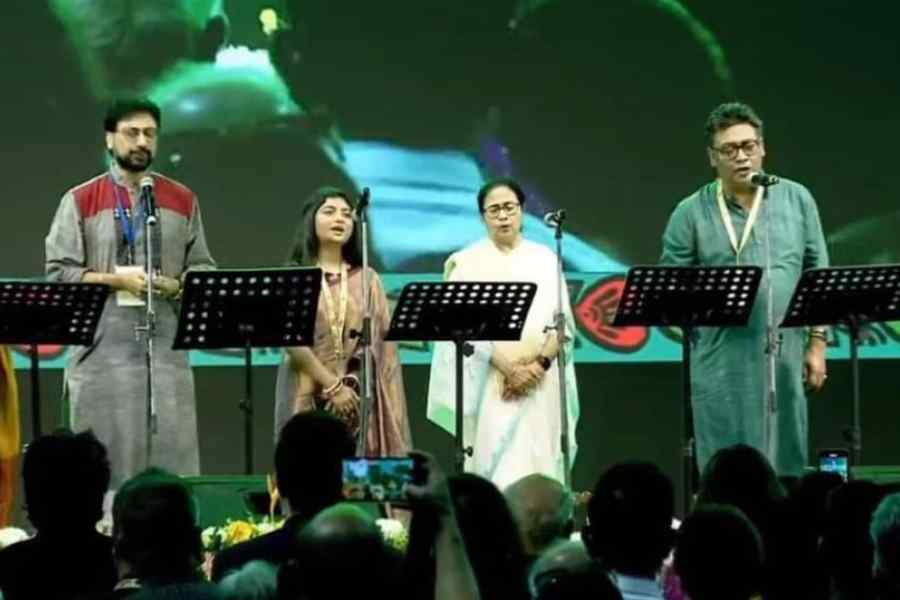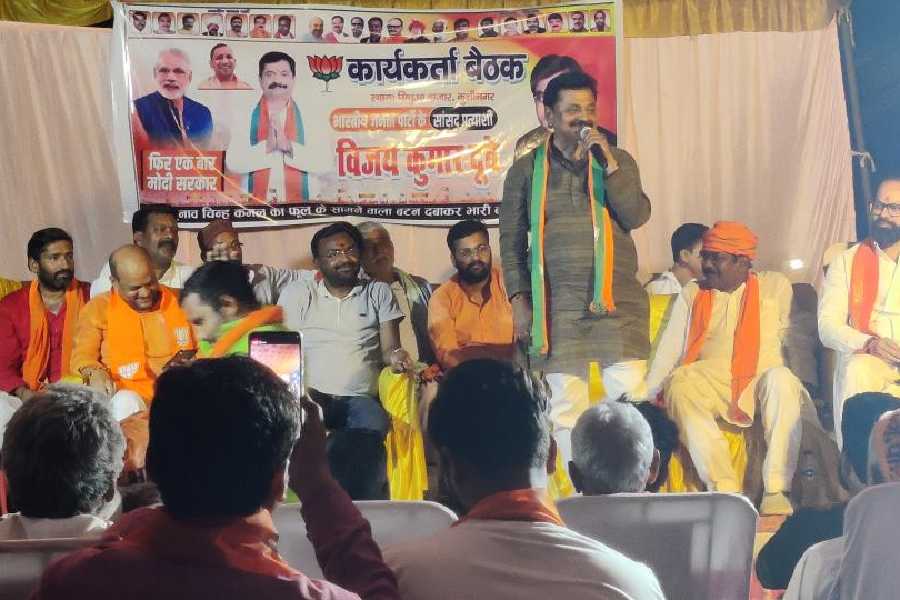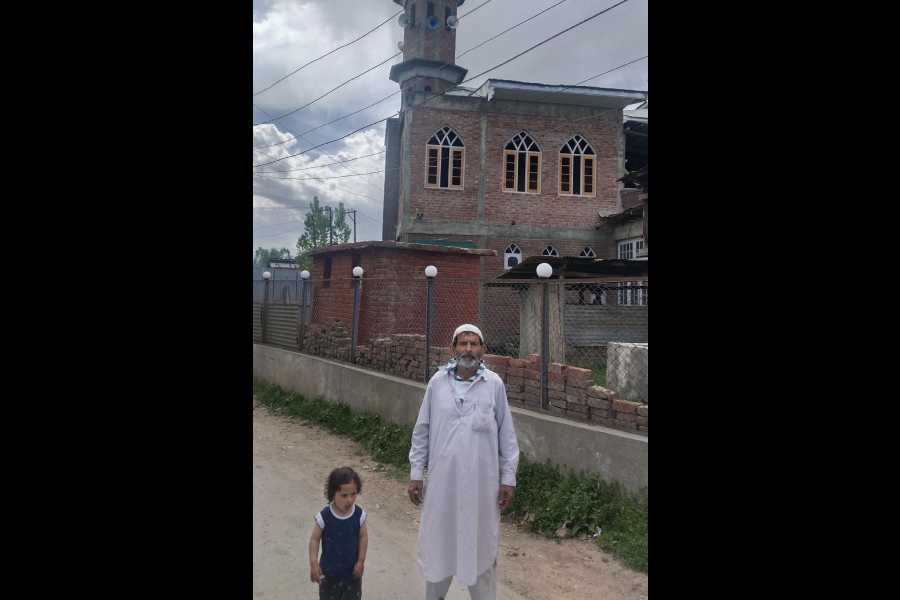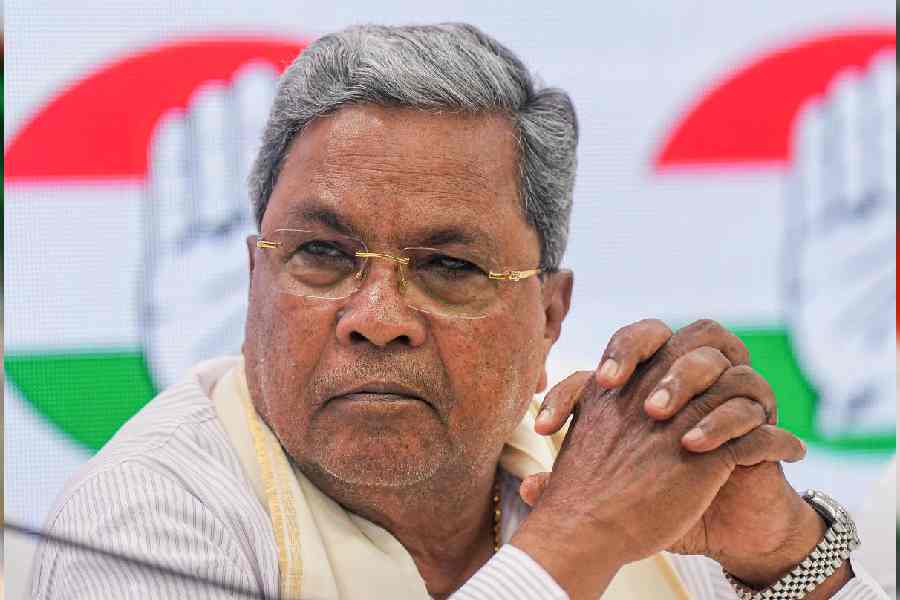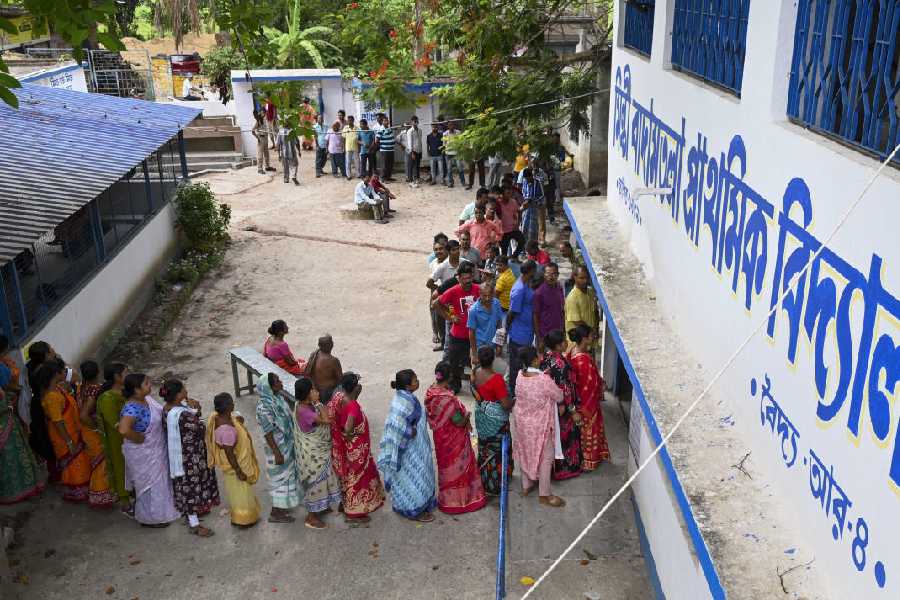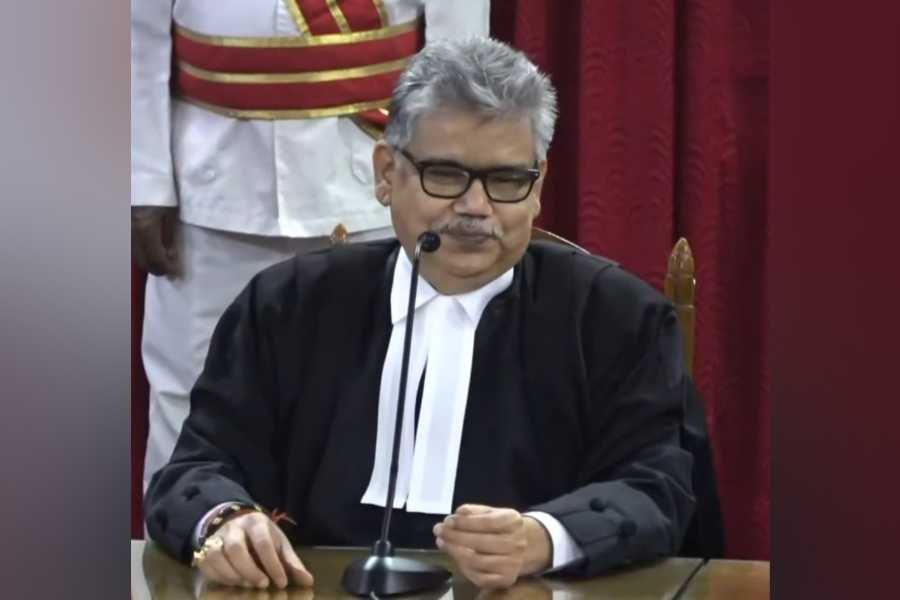Out of tune
Sir — Meddling with iconic songs can be fraught with difficulties. When some musicians rendered Rabindranath Tagore’s “Banglar maati” — recently nominated as the state song — at the Kolkata International Film Festival, many in the audience were caught unawares. In one line of the song, the word, ‘Bangalir’, was replaced with ‘Banglar’, allegedly owing to a suggestion by the chief minister of West Bengal. Such a twisting of words to appease all sections of the electorate understandably enraged many. More so since Bengalis are particularly sensitive when it comes to Tagore. If the chief minister thinks that the words of Tagore are not adequate to represent Bengal’s diversity, she should have commissioned contemporary artists to write a new song.
Shilpa Sahu, Calcutta
Historic verdict
Sir — The Supreme Court verdict upholding the abrogation of Article 370, which granted special status to Jammu and Kashmir, has settled a decades-long debate (“SC seal on 370 nail”, Dec 12). The apex court has also directed the government to restore statehood to Jammu and Kashmir at the earliest and to hold assembly elections by September 30 next year.
However, the abrogation of Article 370 will not yield positive results unless the Kashmiris are made stakeholders in the state’s development. The state has barely seen any industrial development owing to political corruption and militancy. The fillip provided by the verdict should spur the government to take more confidence-building measures to ensure long-term peace and development in the Valley.
Khokan Das, Calcutta
Sir — A Constitution bench of the Supreme Court has laid to rest doubts regarding the constitutional validity of the abrogation of Article 370. The bench’s declaration that Jammu and Kashmir has no internal sovereignty after joining the Indian Union is of immense political significance.
Since the abrogation of Article 370 was one of the oldest ideological projects of the Rashtriya Swayamsevak Sangh, the saffron family will find reason to cheer the verdict. But while doing so, the Bharatiya Janata Party government should not delay assembly elections in Jammu and Kashmir. The integration of a state cannot take place without addressing the democratic aspirations of its people.
M. Jeyaram, Sholavandan, Tamil Nadu
Sir — After the apex court verdict on the constitutional validity of the abrogation of Article 370, the onus is now on the Centre to rebuild democracy in the Valley while taking into account the voices of stakeholders from all religions and communities.
D.V.G. Sankara Rao, Andhra Pradesh
Sir — National interest trumps hurt sentiments — this is the message that has been delivered by the Supreme Court through its judgment on the abrogation of Article 370. But this should not eclipse the discontent that continues to simmer in Jammu and Kashmir. This needs to be addressed if national interest is truly to be safeguarded.
Bidyut Kumar Chatterjee, Faridabad
Sir — The verdict of the Supreme Court on the abrogation of Article 370 must have disappointed the Opposition, which wants to stir up trouble in order to garner votes. However, it must face some facts. A written report submitted by the Union home ministry to the Rajya Sabha shows that the number of terrorist incidents in the Valley reduced by 59% between 2019 and 2020 and by a further 32% as of June 2021. No stone-pelting has been recorded so far in 2023 as per the Union home minister, Amit Shah. Tourism, too, has increased. The real gripe of the National Conference and the Peoples Democratic Party is that their political agendas have been demolished with the abrogation of Article 370. It remains to be seen how Kashmir fits in with the rest of India once statehood is restored.
Abhijit Chakraborty, Howrah
Sir — Democracy can return to the Valley with the historic judgment of the Supreme Court which observed that Article 370 was meant to be a temporary measure. It is worth noting that since the repeal of Article 370, Jammu and Kashmir’s gross domestic product has gone up and tourism has seen an uptick. Law and order, too, seems to be under better control. Jammu and Kashmir’s link with the rest of India will be strengthened by this verdict.
Abhijit Roy, Jamshedpur
Sir — The abrogation of Article 370 ought to reduce the alienation that the people of Jammu and Kashmir feel vis-a-vis the rest of India. However, another state in India has all the reason to feel such alienation: Manipur. This may sow the seeds of secession in the populace, creating another Jammu and Kashmir-like situation.
Avinash Godboley, Dewas, Madhya Pradesh.
Key figure
Sir — Sukanta Chaudhuri narrated the experience of attending a symposium where he was the sole participant from the field of education in “An invisible figure” (Dec 11). Private schools, colleges and tuition centres have become lucrative business ventures in many parts of India, including West Bengal. These institutions charge hefty fees from students and the government has little control over them. Education is thus no longer the realm of prominent intellectuals and educationists.
Sanjit Ghatak, Calcutta
Sir — Sukanta Chaudhuri’s article on the role of teachers was insightful. Over the last decade, the quality of education in government schools has deteriorated. This is because of the recruitment of teachers who do not have adequate training. Schools need to improve the situation by recruiting more efficient teachers and offering them better salaries and benefits. Investment in education is an investment in the future of our students.
H.N. Ramakrishna, Bengaluru

